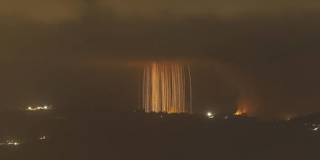
The Middle East’s Deadly Dream Palaces
Hezbollah leader Hassan Nasrallah turned out to be just another delusional Arab ruler who was destroyed by the war with Israel that he had so eagerly courted. With the current Israeli government lost in nationalist delusions of its own, there is no foreseeable end to the cycle of violence.
TEL AVIV – Israel’s assassination of Hezbollah leader Hassan Nasrallah is an event of historic proportions in the Middle East. As can be seen from Iran’s response to Israel’s attacks on its Lebanese-based proxy, the shock waves are spreading throughout the region and are likely to reverberate around the world.